Levels of Thought: Learning techniques...
Humans have evolved super fast in just a few centuries due to their ability to learn and communicate. Learning skills can help people outsmart inherently talented individuals. In this post, I will cover a few techniques for learning.
Level 1: Rote Learning
Many students learn by heart for their exams, especially during last-minute preparations. For obvious reasons, there are better approaches than this. Understanding concepts gives you greater power in an infinite number of situations. This skill is essential, especially when you are giving presentations. Steve Jobs rehearsed his material 200 times before his famous presentations.
Level 2: Feynman technique
Richard Feynman, a famous physicist, also gives excellent simplified lectures. He suggests you pretend to teach concepts to a sixth grader. This technique forces you to break down a complex idea into simple components. Whenever I tried this technique, I discovered so many of my blindspots.
Level 3: Expert discussion
No two people think alike. Very rarely do two people make the same mistakes while doing a task. This technique capitalizes on this observation. When you discuss with someone, they will question you on unclear parts and correct you on the incorrect details and vice versa. It is even better when the 2nd person is an expert!
These engaging conversations involve multiple sensory organs [seeing other person's reactions, hearing his arguments, heated debates, and funny incidents], which leads to better memory.
Level 4: Do v/s talk
Reality is unforgiving. You can learn a concept wrong, but you cannot build something with an incorrect understanding. You will not be able to build a working car if you have learned the physics concepts incorrectly. You can learn by creating a simple prototype, implementing simulations on a computer, etc.
Level 5: Cross-domain knowledge
Interdisciplinary thinking is the key to modern development. Each concept is a building block to build a complex concept. Zettlekasten method of note-taking is gaining popularity in building a personal second brain. It is a time-consuming process but a great knowledge management system and an idea-generating machine.
Higher Levels

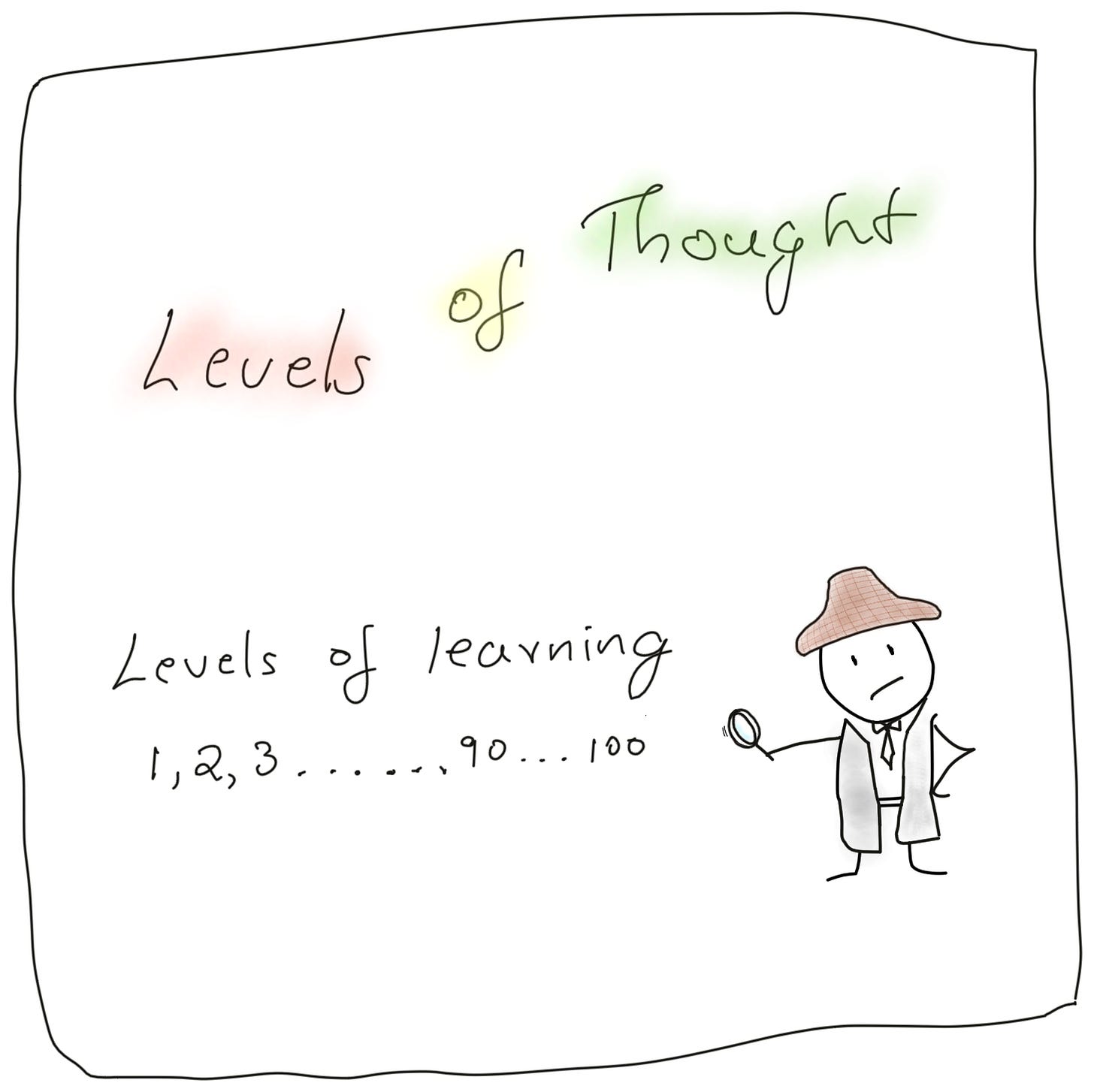
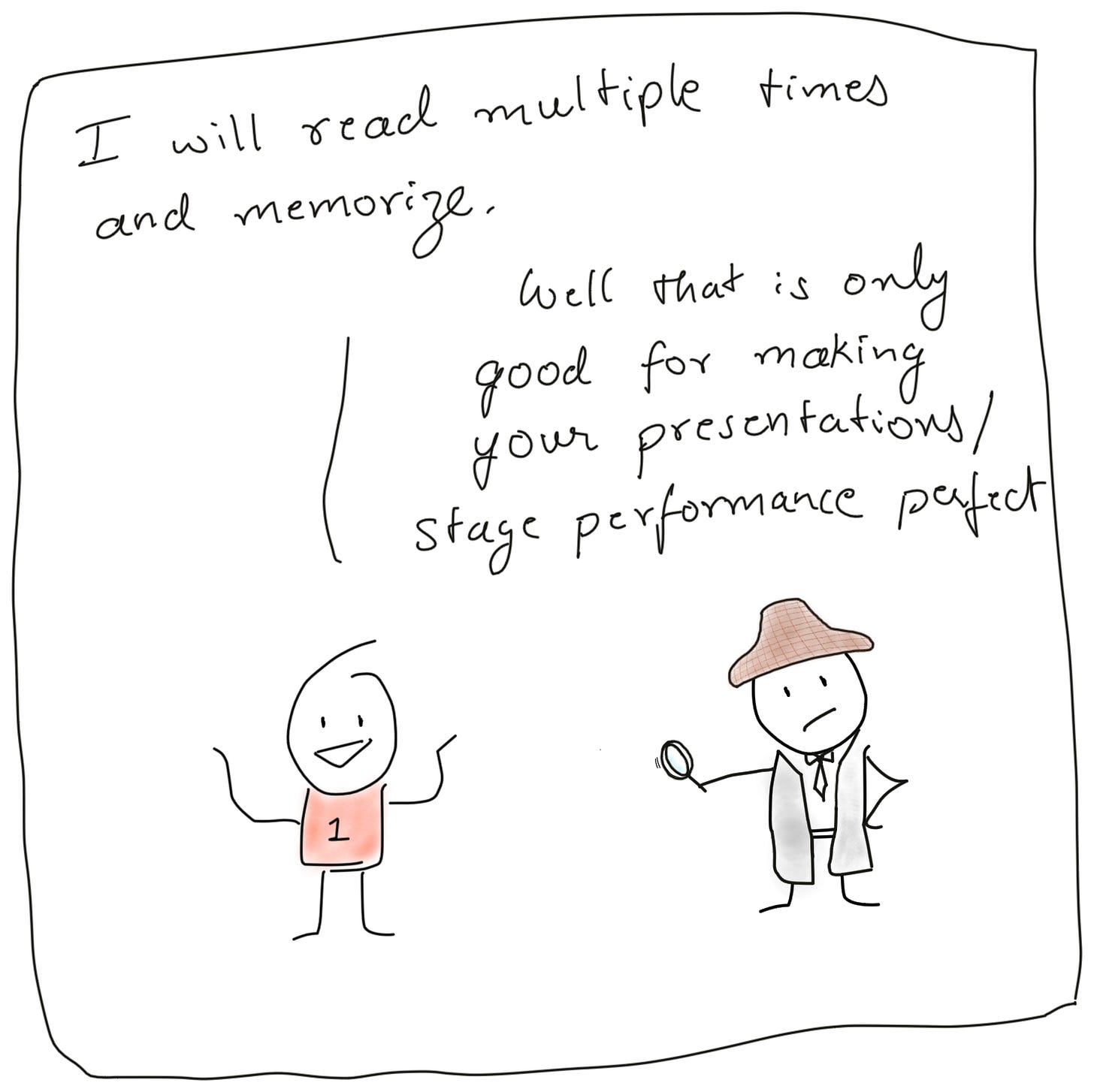
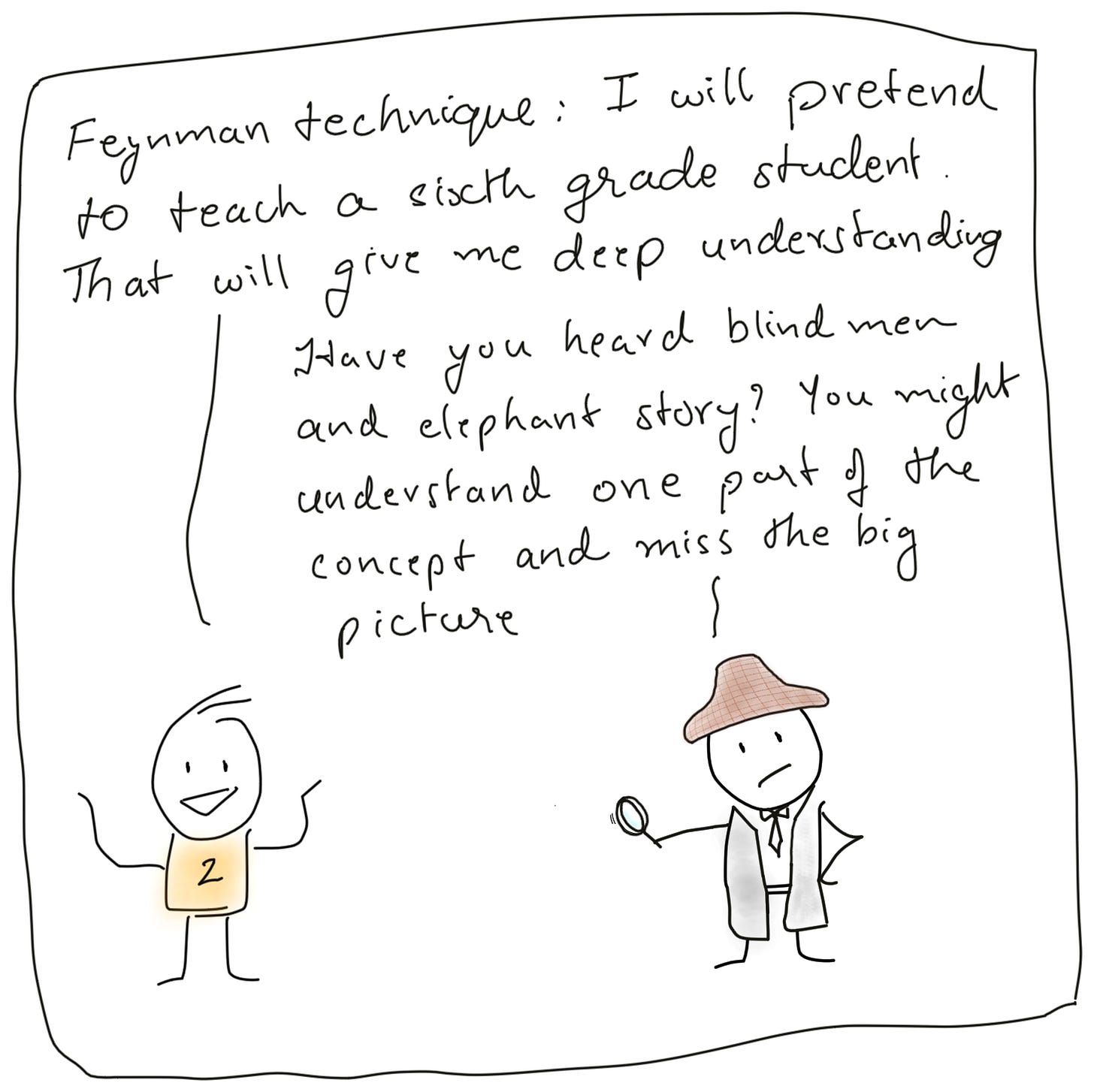
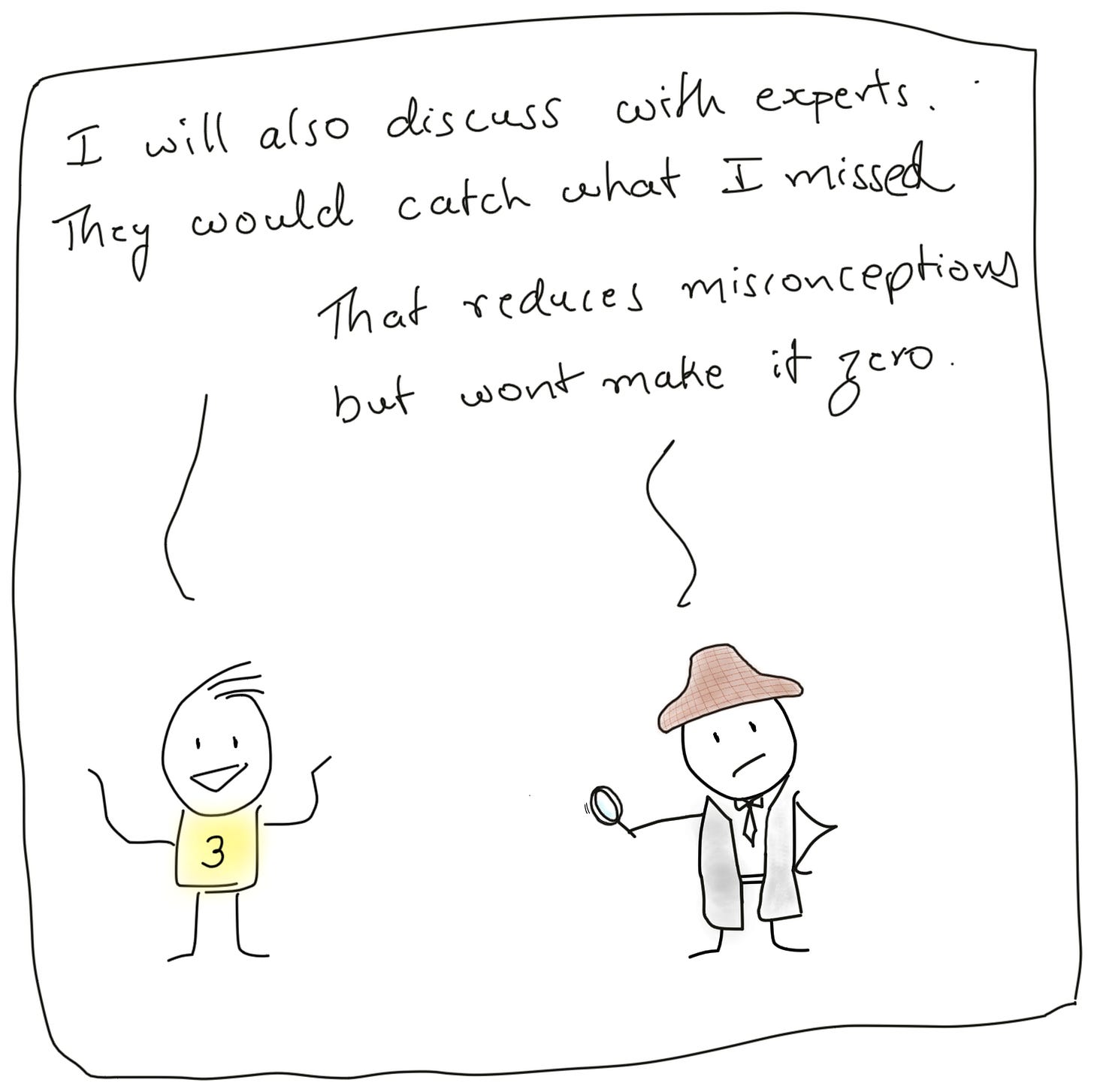
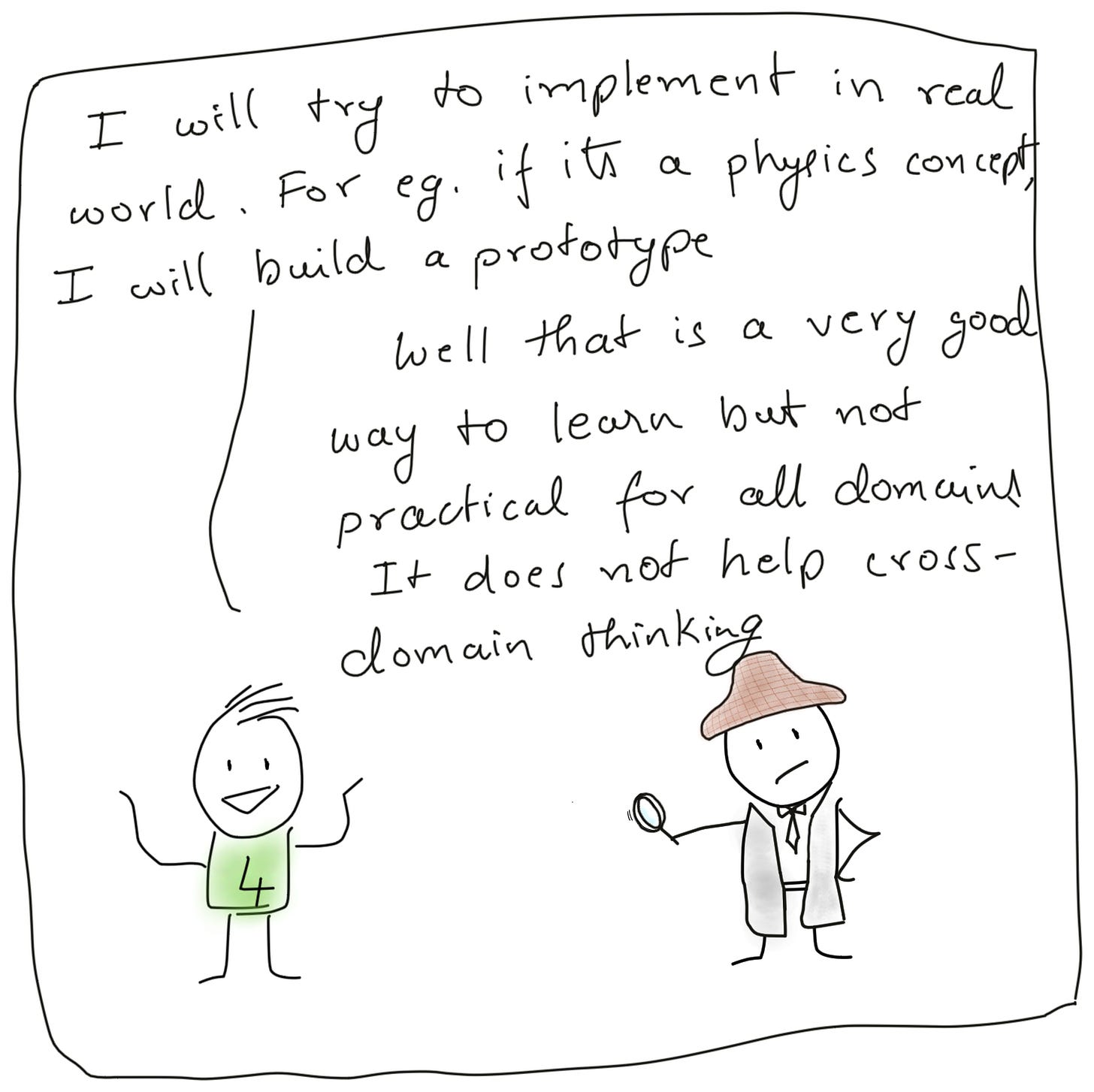
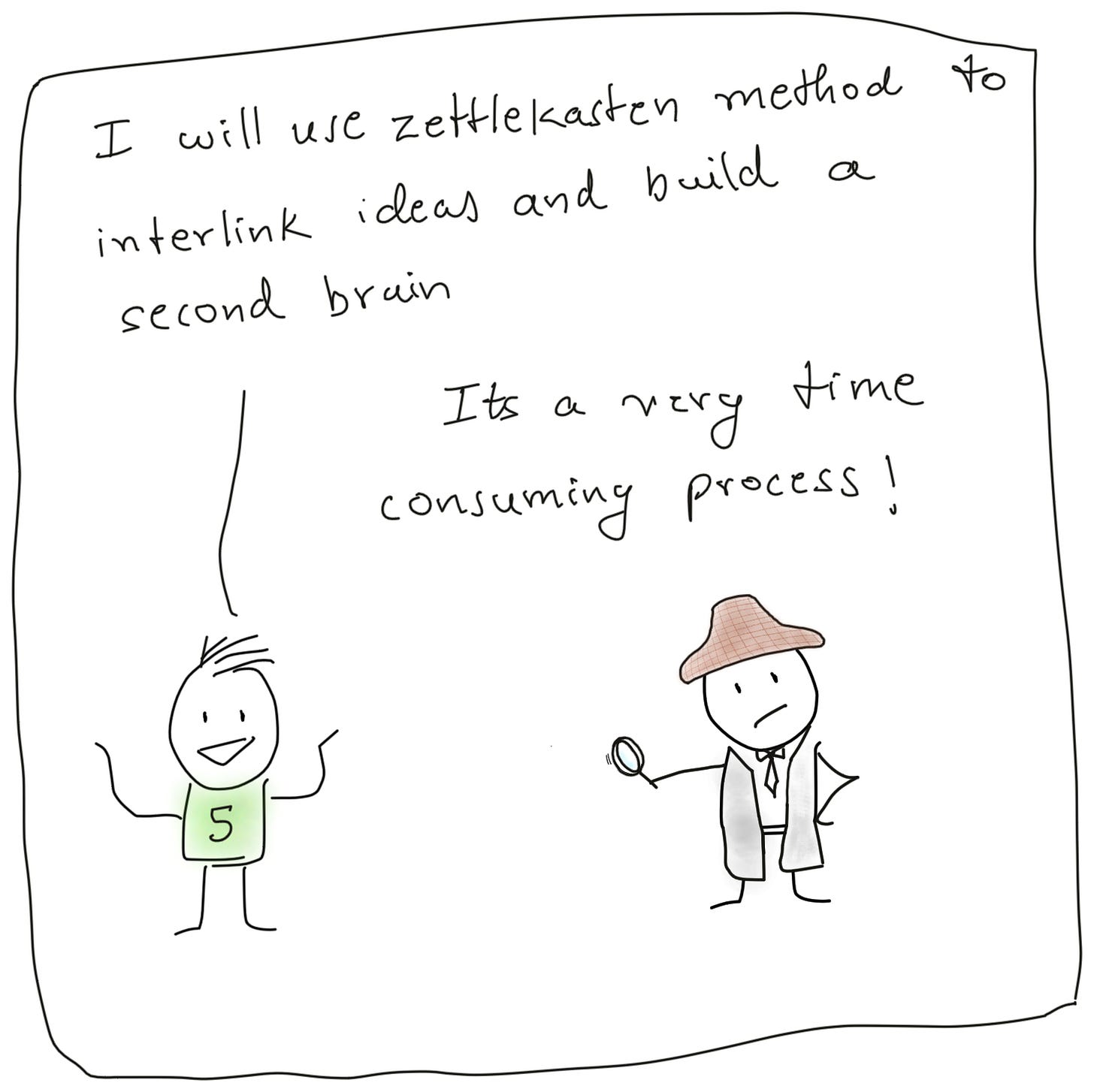
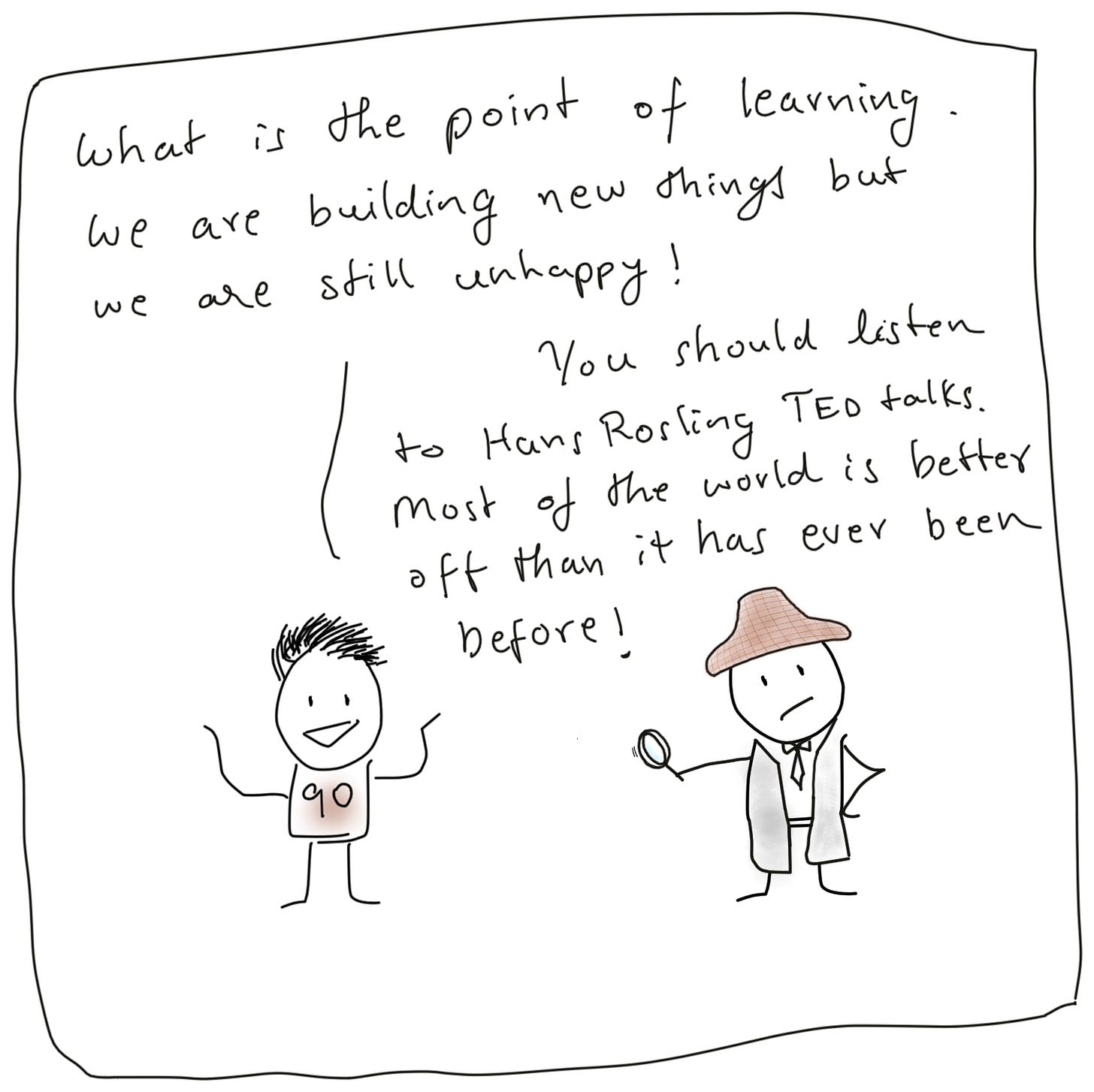

Very nice article, Rama. Please keep sharing. The way infographic representation followed with text explanation really pulls lots of attention and curiosity. Would love to read and learn more :)